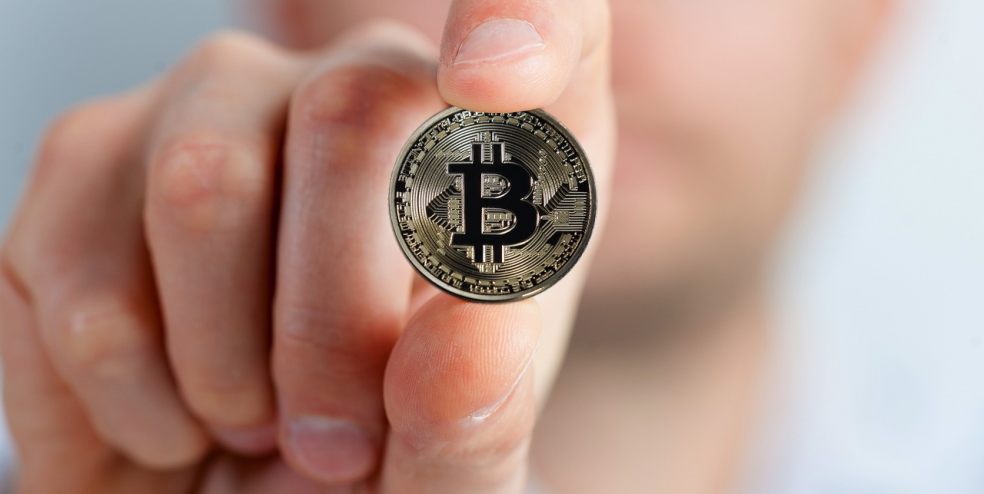
How Bitcoin Encryption Works: A Complete Guide
At the height of the 2021 bull market, the global crypto market was worth more than $3 trillion. Bitcoin makes up the bulk of its value as the oldest and most popular cryptocurrency on the market.
As new investors jump on the cryptocurrency train, most start out by investing in Bitcoin. There are many reasons this is a good idea. But it's important as an investor to understand how Bitcoin works and why this technology is revolutionary.
In particular, Bitcoin encryption, and the decentralization of currency in general, is a huge aspect of this asset class.
So how does Bitcoin encryption work? Keep reading below to learn more about the benefits of using crypto coins today.
What Is Bitcoin?
Before getting into the technical aspects of encryption, you need to understand what Bitcoin (and cryptocurrency) is at its core.
Bitcoin is the world's first cryptocurrency, having launched in 2009. It sparked a revolution, and over the last decade, we have seen thousands of cryptocurrencies launch, each with its own focus and technology, but all modeled after Bitcoin in one way or another.
Bitcoin launched with the goal of becoming a digital currency, native to the internet. This makes it much more efficient to use in the modern era than US dollars or other fiat currencies which are not internet-native.
It exists to move seamlessly from person to person over the internet. And that's another benefit. Bitcoin is a peer-to-peer currency.
Users can send Bitcoin directly to each other, without needing to pass through any intermediaries. There are no banks that need to facilitate or approve the transaction.
There are no clearing houses that need to confirm money movements. And there are no payment processors taking on fees as a middleman. Although there are minor transaction fees paid to miners (who keep the network secure).
All of these factors create a decentralized currency. It's not created, managed, or controlled by a government, a bank, or a company. Even the founding team can't control it, as it's owned by the investors.
What Is the Blockchain?
The blockchain is what makes Bitcoin possible. It's the foundation of cryptocurrency and it's what creates decentralization.
For centralized currencies, like US dollars, banks are responsible for recording and approving transactions. They keep their own ledger of transactions, which are overseen in private.
No one on the outside can see these transactions.
But the blockchain is a decentralized, open ledger. Anyone from the public can view every Bitcoin transaction, recorded on the blockchain.
Well that doesn't sound very private, does it? Well, it can be. Bitcoin moves from crypto wallet to crypto wallet.
In most cases, your crypto wallet contains zero personal information. You don't need to associate an email address, a name, or a phone number to your blockchain wallet. It's just a long string of characters, so nobody knows who owns a particular wallet.
So you can still see where money moves, how much money moves, and which wallets are currently holding it. Bitcoin transactions are final and users can't dispute them.
As they say in the crypto community, "the blockchain doesn't lie."
What Is Bitcoin Encryption?
So what is Bitcoin encryption? Encryption is just one process that makes up cryptography.
Cryptography is much larger than cryptocurrency, but it's where the term "cryptocurrency" comes from. Cryptography is a field of math that focuses on methods of maintaining the privacy and digital security.
Cryptocurrency uses these methods to maintain a digital, decentralized currency. But cryptography in general is used by nearly every form of technology such as phones, computers, email providers, websites, social media services, and much more.
Encryption in particular is the process of taking data and turning it into a secret message that no one can read or understand. Data in its plain form is "plaintext."
Before sending information over the internet, where many people try to intercept and decipher, the data gets encrypted so no one can steal the data.
When the encrypted data arrives at its destination, only the intended receiver can "decrypt" the information, which is the process of converting the ciphertext back to readable plaintext.
How Does Bitcoin Encryption Work?
Ready for some confusion? Bitcoin doesn't actually use encryption. While Bitcoin uses cryptography, encryption is not an aspect used in Bitcoin transactions. Why is that?
As mentioned above, decentralization is possible because the ledger of transactions (blockchain) is open to the public. Transactions are visible to anyone and everyone. So Bitcoin transactions aren't sent in secret.
To keep the network secure, the message regarding the Bitcoin blockchain can't hide.
There are, however, other cryptocurrencies that do use encryption. They are privacy-focused cryptocurrencies that can hide the amount of money sent as well as obscure the recipient.
The most popular of these types of cryptocurrencies include Monero and ZCash, though their use is controversial.
There are other elements of cryptography that Bitcoin employs, such as hashing, the use of digital signatures, and the use of public and private keys, which are the most relevant elements to Bitcoin users.
What Is Bitcoin Hashing?
Hashing is a highly technical process. It's the process of taking an input (data) and producing a unique output, which is a designated number of random characters.
There are countless different types of hash functions, but Bitcoin primarily uses the SHA-256 hash function. Whether the initial input is a huge amount of data or a tiny amount of data, the output will always be 256 bits.
Every time the input changes, by even one character, the entire output changes to a unique number. This helps to verify data and ensure no one tampers with the data.
With Bitcoin, hashing is primarily used in the mining process. Every 10 minutes, a new block launches in the blockchain. Each block on the blockchain can only hold a certain number of transactions, as block space maxes out at 1 MB.
Once the block is full, a hash is created for that block. This ensures the transactions are immutable (cannot change). The hash for the previous block is then used in the creation of the next block, tying each block together.
What Are Private and Public Keys?
Most Bitcoin users and investors don't need to have a thorough understanding of hash functions. But they do need to understand public and private keys.
They are used with all crypto wallets and are used to authorize transactions as well as protect the funds in your wallet from hacking and theft.
A public key is essentially the identity of your wallet. It's safe to share this with the world. The only thing other users can do with your public key is sent cryptocurrency to you.
A public key cannot be used to gain access to a wallet, generate unauthorized transactions, or anything that could put you at risk.
Public keys vary in structure depending on the blockchain being used. All Bitcoin wallets will use a public key that starts with either a 1 or a 3.
For wallets on the Ethereum blockchain, wallet addresses (public keys) always begin with "0x" and are 42 characters in length.
What Are Private Keys?
Your private key is exactly that; private. Only the wallet owner should have access to the private key of a wallet. Never share this with anyone.
No bank, crypto company, or anyone else should know your private key. You will never need to share it unless you want your funds stolen.
Private keys verify ownership of the wallet and the funds inside it. Anyone who has a private key has access to the wallet and can send the funds anywhere they choose.
Private keys are more complex than public keys. For that reason, most users never actually see their private keys, as they are stored in the code.
Most wallets will provide a more user-friendly way of seeing their private key. The key will be encrypted and will be shown as a phrase or string of characters that are easier to read.
Some wallets will also use a seed phrase. This is a collection of random words, in a specific order. By knowing the seed phrase, you can gain access to the private key.
So a seed phrase is essentially an ultra-secure password for your private key. Again, never share your seed phrase with anyone.
What Are Bitcoin Digital Signatures?
A signature is used to authorize an action. They are used to sign bank checks, allowing the recipient to receive money.
Signatures are used to sign legal documents, binding people to the contents of the contract. And signatures can be physical (signing with a pen in hand) or digital.
Bitcoin uses digital signatures to approve transactions. When sending Bitcoin out of your wallet, you need to sign the transaction. The signature shows up in the transaction on the blockchain, making it legitimate. Only the wallet owner can provide the signature.
Investing in Bitcoin Today
Bitcoin, and the technology behind it, can be difficult to understand for those who aren't engineers or mathematicians. Just know that it's all about a decentralized, digital currency that can be sent peer to peer, without any bank or company required to have custody of the funds.
So are you ready to start investing in Bitcoin yourself, either to hold long-term or to use for regular transactions? Here's what to do.
Decide Where to Buy Crypto
There are numerous places you can buy Bitcoin. The easiest is to use a financial service provider that you already have an account.
For many people, this is Paypal, eToro, or even some bank accounts. They allow you to purchase Bitcoin right from your dashboard. The problem with this, though, is that you don't actually own the Bitcoin.
The Bitcoin is stored in that company's wallet, not your own. Therefore, the transaction wasn't actually recorded on the blockchain. And if you try to withdraw Bitcoin to your own personal crypto-wallet, they will prevent that.
So investing in Bitcoin this way doesn't provide you with any of the benefits mentioned above. So a better way is to buy either from a crypto exchange or a crypto ATM.
Buying on a Crypto Exchange
Many people choose to use an online cryptocurrency exchange, like Coinbase or Binance, to purchase Bitcoin. To use one of these services, you need to create a new account.
You'll need to verify your identity by submitting your government-issued ID, social security number, and a current photo of yourself along with other personal information. This is to help prevent fraud and money laundering.
Verification can happen in a few minutes, but frequently takes hours or even days with crypto exchanges.
Once verified, you need to link a payment method, such as a bank account. Then you can transfer cash to your crypto account and buy Bitcoin at the current rate.
You can store your crypto in the exchange account, but doing so means you don't actually have control of it. You should set up a personal crypto wallet and withdraw your crypto to that wallet. Most crypto exchanges allow this.
Buying from a Crypto ATM
Want to buy Bitcoin with cash? You can with a crypto ATM. They function just like regular ATMs, making them very user-friendly.
You'll still need to create an account and verify your identity, but this is much faster than using an exchange. Then, just insert cash, choose the crypto you want to buy, and scan your crypto wallet address.
Your Bitcoin will arrive in your wallet in just a few minutes.
Where are ATM locations? You can find them in nearly every city at convenience stores, grocery stores, and many other locations.
Buy a Hardware Wallet
The best thing you can do when investing in cryptocurrency purchases a hardware wallet. These are physical hard drives that keep your private key as secure and safe as possible.
Because it's stored on a device, it's kept away from the internet, making it impossible for hackers to gain access to your private key. It's a small investment that is worth its weight in gold.
You can rest assured knowing your crypto investments are as safe as possible.
Invest in Bitcoin With Confidence
Now that you know a little bit more about how Bitcoin works, and that Bitcoin encryption isn't what people think, you can invest with more confidence. Cryptocurrency is a revolutionary technology and we will see its importance continue growing over time.
Looking for more information like this? Visit our blog now to continue reading.













